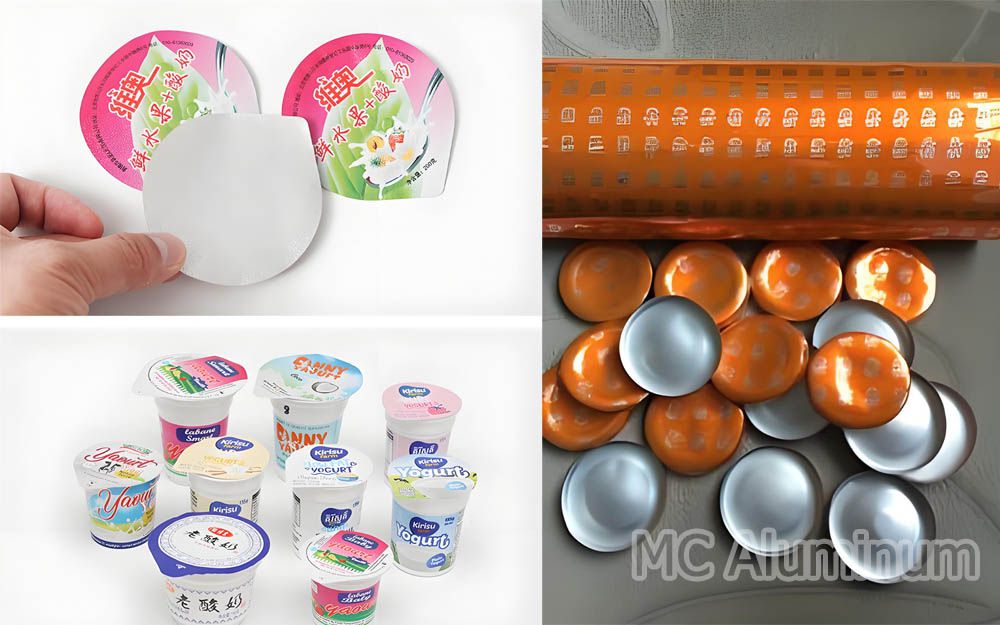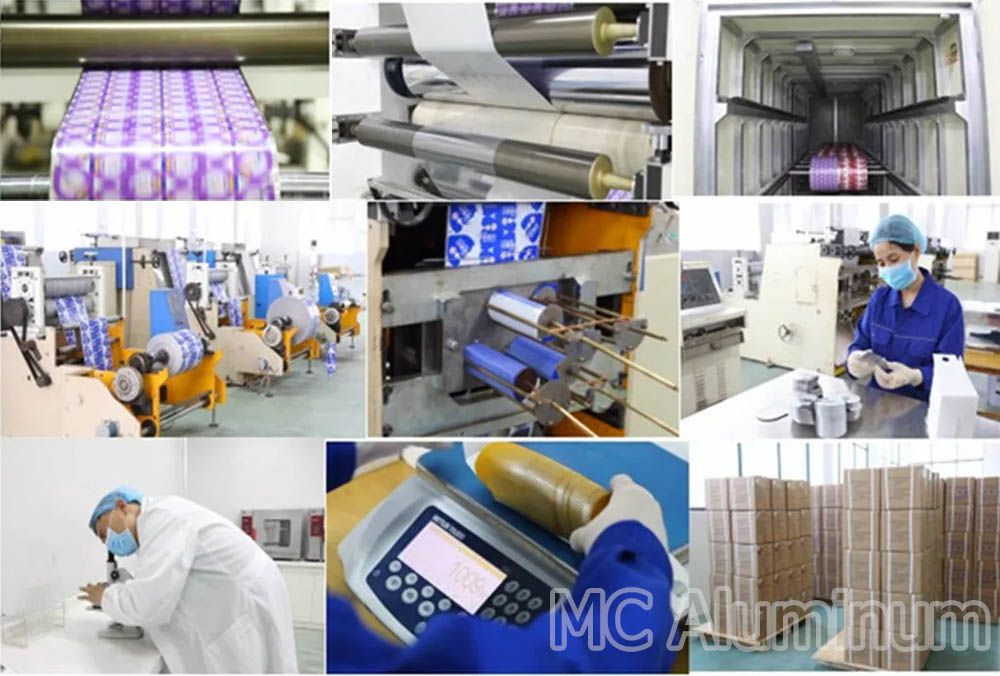Aluminum foil yogurt lids were originally designed solely for freshness and sealing. Today, with increasing brand awareness, this small piece of foil—barely ten square centimeters—has become a key platform for brand expression.
Through techniques such as heat transfer printing, embossing, and UV printing, high-definition logos, slogans, QR codes, and even limited-edition designs can be printed on yogurt lids. This “lid-top marketing” is gaining popularity, creating visual impressions and emotional resonance each time a consumer opens a yogurt.

Performance Advantages of Aluminum Foil Yogurt Lids
Barrier Performance:
Aluminum foil offers significantly better moisture and oxidation resistance than pure plastic materials, reducing the risk of oxidation and spoilage during transportation.Environmental Friendliness:
Aluminum foil is recyclable and meets European environmental standards. Composite materials made with aluminum foil remain stable even after high-temperature sterilization.Consumer Experience:
Some consumers enjoy licking the yogurt that sticks to the lid. The smooth, residue-free surface of aluminum foil makes it safe for direct food contact.
Personalized Customization: Yogurt Lids That “Speak”
1.Brand Identity Reinforcement
Logos are typically presented on aluminum foil lids using printing, embossing, or hot stamping techniques, creating strong visual memory. For example, brands like Guangming and Yili often print their logos on yogurt lids, using clean color schemes (e.g., blue-green or gold) to enhance packaging recognition.
2.Functionality Meets Aesthetics
Aluminum foil is easy to tear, allowing consumers to open it effortlessly. Logo design must not interfere with tear-line functionality. Some brands combine "easy-tear lines + logo" designs to balance usability and visual appeal.

Potential Optimization Directions for Yogurt Lid Foils
1.Enhanced Safety
To address the issue of sharp aluminum foil edges, round-corner designs or tear rings can be used to reduce the risk of cuts.
2.Functional Expansion
With smart packaging technology, temperature-sensitive labels can be embedded on the inside of the foil lid to alert consumers to the best drinking temperature.
3.Environmental Sustainability
Some brands are exploring biodegradable composite foils or recycled aluminum foil materials to minimize environmental impact.
4.Cost Control
By optimizing foil thickness and printing processes, packaging costs can be reduced without compromising quality—improving overall market competitiveness.
MC Aluminum is the first professional manufacturer of 8011 aluminum foil. Its products are widely used for yogurt lids, milk powder covers, and more. The company supports food-grade ink logo printing and offers customized foil substrates with thicknesses from 0.02–0.5 mm and widths from 100–1700 mm.
4o
